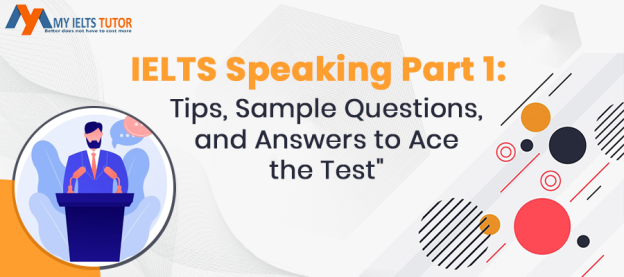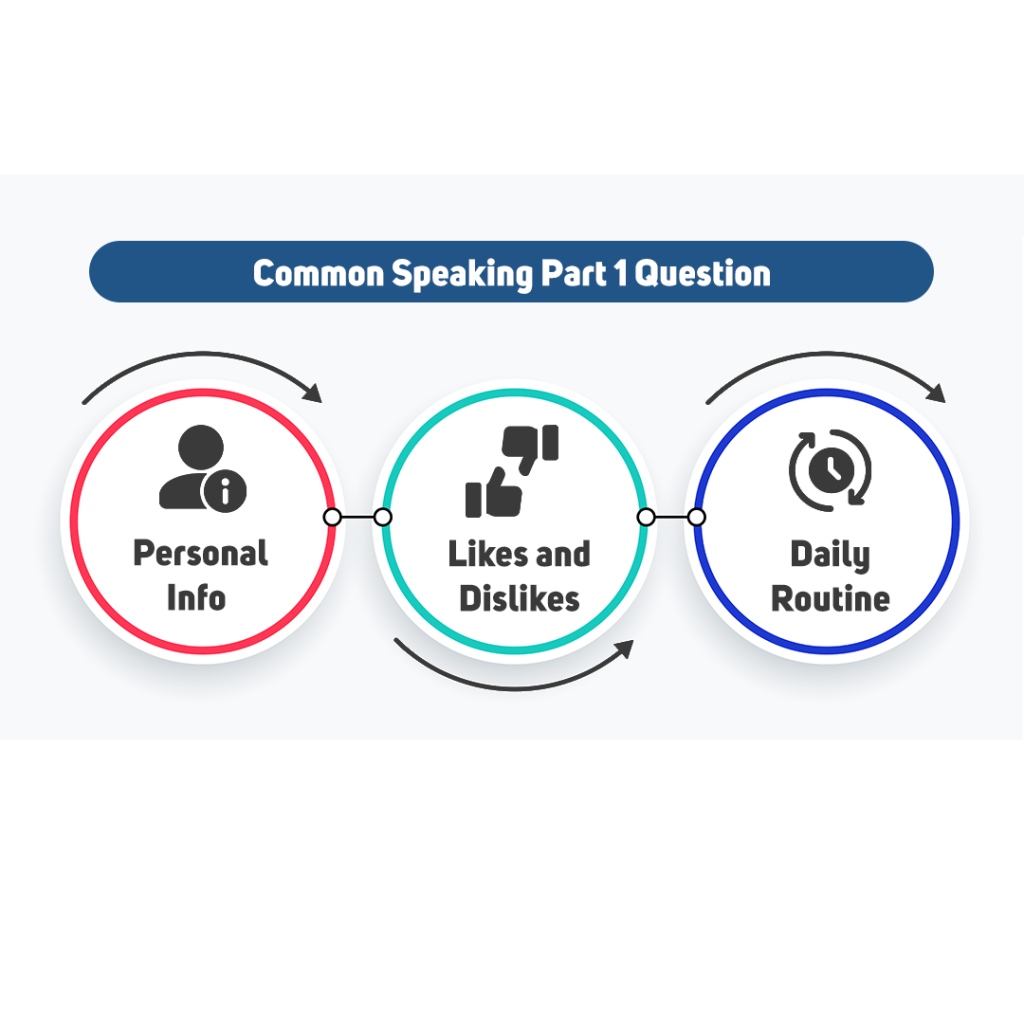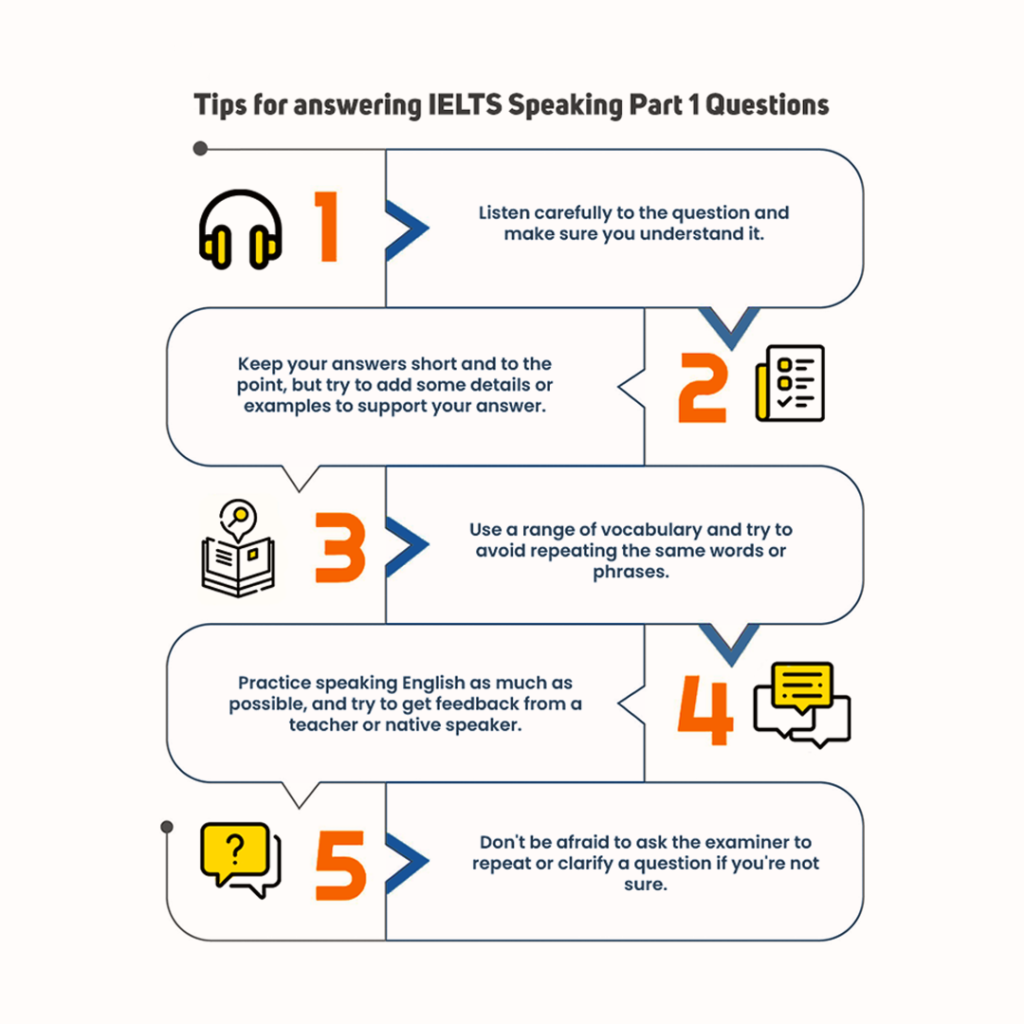Your cart is currently empty!
Category: Blog
-
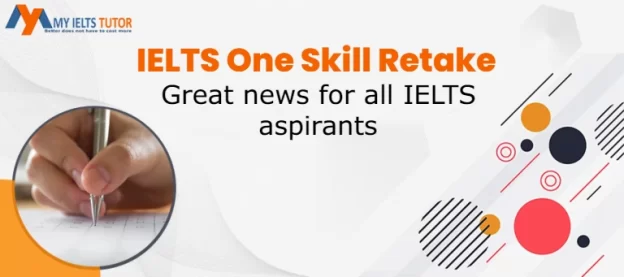
IELTS One Skill Retake
IELTS Test takers now have a chance to take their IELTS Score higher in single module
Great news for all IELTS aspirants! Test takers of the world’s most popular high-stakes language test, (IELTS), will soon have access to a new feature to help them boost the score they need to achieve their global learning and career goals.
On 28 october, 2022, The IELTS One Skill Retake test will be introduced by IDP, according to a recent announcement. If a student does not get the score they were hoping for on the first try, they will have the option to retake only one of the four skills (Listening, Reading, Writing, or Speaking) on the IELTS exam. There are still a lot of unknown concerns at this point, but it is clear that the implementation of the IELTS One Skill Retake might have a significant influence on how long it takes test-takers to get their goal scores. For instance,
- Will you be able to take the IELTS One Skill Retake once, or many times?
- What would be the cost of One skill retake?
- And will all professional bodies and governments accept the IELTS One Skill Retake certificate?
What questions do we have about the IELTS One Skill Retake?
This initial communication regarding the IELTS One Skill retake obviously raises more questions than it does answers. What is certain, though, is that IELTS has listened to test-takers and recognises the necessity of introducing the option for students to repeat just one portion of the exam rather than being required to do so.
This is crucial for children whose grades vary across modules. For instance, they could discover that their Speaking score fluctuates between a 6.5 and a 7.0, while their Writing score remains constant at a 6.5. Nothing is more upsetting for students in this situation than working so hard to get a 7.0 in writing only to get a 6.5 in speaking. Students can now “hold” their Writing score of 7.0 and merely take Speaking again. Isn’t it great. However, there are still a number of points that remain unclear:
- The initial communication said that the plan will launch in the major cities of Australia. It is unclear, however, if this is merely a prototype programme (i.e., one that is being evaluated before being implemented globally) or if they are only the first centres to provide the IELTS One Skill Retake and others across the globe will soon follow.
- There is also no mention of the test’s fee or how many times a student may take the IELTS One Skill Retake. Will it be possible to retake the test, or is this just a one-time opportunity following the completion of a comprehensive test?
- There is no word on whether the second form will be recognised by institutions other than the Australian Department of Home Affairs. Will you be able to use the IELTS One Skill Retake to seek Canadian residency? My expectation is that each of these organisations will have its own policy, so we’ll have to wait and see what happens.
Warwick Freeland, Managing Director – IELTS, IDP Education, said One Skill Retake has been introduced after listening to test taker feedback.
“With the right preparation and support, we know our test takers achieve their best score the first time around,” Mr Freeland said.
“However, we listened to our test takers and they told us they wanted the opportunity to retake one section of the test if they didn’t get the score they were aspiring for on test day,” he said.
“With One Skill Retake, test takers can get their study, migration or work applications plans back on track,” he said.”
Read also – IELTS Exam Day: A Survival Guide
[carousel_slide id=’16536′]
-
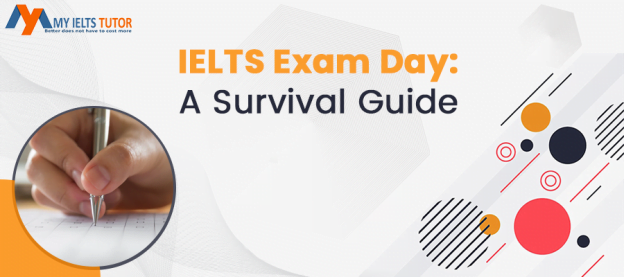
IELTS Exam Day: A Survival Guide
Are you preparing to take the IELTS exam? Whether this is your first time or you’ve taken the exam before, it’s important to be prepared for what to expect on exam day.
The IELTS exam can be challenging, but with the right preparation and strategy, you can feel confident and ready to ace it. Here are a few tips to help you make the most of your IELTS exam experience:
- Get plenty of rest the night before the test.
- Arrive at the test center early.
- Bring your original passport, colored photocopy of your passport and your test confirmation receipt.
- Read the instructions carefully.
- Answer all questions.
- Do guess – if you don’t know the answer, Do not skip it.
- Do not leave any questions blank.
Preparing for IELTS Exam Day
So, it’s exam day. You’ve been studying for weeks (or months), and you’re feeling ready. But there are still a few things you can do to make sure you’re prepared.
First, make sure you know where the test center is and how to get there. Plan to arrive early, so you can relax and get comfortable before the test starts. Dress comfortably—you’ll be spending a few hours in the room, so you’ll want to be as comfortable as possible.
Most importantly, stay calm and don’t worry. The IELTS exam is just one test, and it’s not going to determine your entire future. You’ve prepared for this, so now it’s time to put your skills to the test and see what you can achieve.
What to Expect on IELTS Exam Day
The big day is finally here! You have been preparing for months, and now it’s time to put all that hard work to the test. Here is a survival guide to help you make the most of your IELTS exam day.
First, know what to expect. The IELTS exam is divided into four sections: listening, reading, writing and speaking. You will be given a total of 2 hours and 40 minutes to complete the exam. Second, arrive early. This will give you time to relax and calm your nerves before the test begins. Make sure to bring your ID and admission ticket with you.
Third, know what to bring with you. You will need a pencil, eraser, even though it will be provided in the test Centre. For the writing section, you will need a pen and something to write on (a notepad or your laptop), however, you cannot carry any paper with you so it is recommended to use your question booklet to take notes.
Fourth, be prepared for the test. Read the instructions carefully and make sure you understand what is required of you. Familiarize yourself with the types of questions that are typically asked in each section. Fifth, do your best! Remember that it’s not about winning or losing; it’s about doing your best and learning from your mistakes. Good luck!
How to Stay Calm During the IELTS Exam
The IELTS exam is a challenging test, but with a bit of preparation and some positive thinking, you can stay calm and focused during the exam. Here are some tips to help you stay calm:
- Get a good night’s sleep before the exam.
- Eat a healthy breakfast on the day of the exam.
- Arrive at the test center early so you can relax and prepare yourself mentally for the exam.
- Stay positive and focus on your goals.
- Take a few deep breaths and relax before starting the exam.
How to Avoid Making Common Mistakes on IELTS Exam Day
You’ve studied hard and you know the material inside out. You’ve even practiced under exam conditions. But on the big day, it’s easy to let your nerves get the better of you. Here are some tips to help you avoid making common mistakes on IELTS exam day:
- Arrive early. This will give you plenty of time to relax and calm your nerves.
- Make sure you have everything you need, including ID and your passport/photo ID.
- Read the instructions carefully and make sure you understand what’s required of you.
- Answer the questions in the order they’re written, and make sure your handwriting is clear and legible.
- In task 1, spend no more than 20 minutes on the letter, and no more than 40 minutes on the report.
- In task 2, spend no more than 40 minutes on the essay.
- Pace yourself, and remember to take a break if you need it.
- Finish strong and leave a few minutes to check your work.
What to Do if You’re Not Feeling Well on IELTS Exam Day
If you’re feeling sick on the day of your IELTS exam, don’t worry—you’re not alone. In fact, a lot of people get sick during the exam. But don’t let that stop you from getting the score you want.
If you can, try to drink plenty of fluids and get some rest the night before. And if you’re feeling really ill, it’s probably best to reschedule your exam. But if you can’t do that, here are a few tips for dealing with sickness during the test:
- Drink lots of fluids, preferably water or juice.
- Avoid caffeine and alcohol, which can make you feel worse.
- Try to get some rest the night before.
- Bring fever-reducing medication with you to the test, just in case.
- You do have option to postpone the test date for which you need to visit IDP office with valid proof and yes! extra charges are to be paid to IDP.
Conclusion
You’ve made it to the big day! Whether you’re feeling excited or nervous, just remember that you’ve been preparing for this for weeks (or maybe even months). Here are a few final tips to make sure your IELTS exam goes as smoothly as possible.
- Get to the test center early. This will give you time to relax and calm your nerves.
- Make sure you have everything you need – including your passport or ID and admission ticket.
- Read the instructions carefully before beginning the test.
- If you have any questions during the test, raise your hand and the invigilator will help you.
- Don’t worry if you finish early – just relax and wait for the end of the exam.
- When you’ve finished, make sure you hand in all your materials and leave the room quietly.
Good luck – we know you can do it!
-

How to know whether You are eligible for IELTS or not?
You’re thinking about taking the IELTS test and you want to know if you’re eligible.
Great question! The good news is that most people are eligible to take the IELTS test. In order to be eligible, you must be at least 16 years old and a citizen or resident of an English-speaking country.
There are a few other requirements, which we’ll go over in this post. Keep reading to find out if you’re eligible and, if so, what to do next.
What Is IELTS?
Let’s start with the basics—what is IELTS? IELTS is an English language test that measures your ability to communicate in English. It’s accepted by over 9,000 organizations around the world, so it’s a great way to show that you can handle yourself in an English-speaking environment.
There are two types of IELTS tests: academic and general. The academic test is for students who want to study at a university, and the general test is for people who want to use English for work or travel.
So how do you know if you’re eligible for IELTS? The easiest way is to check the IELTS website. They have a handy eligibility calculator that will tell you whether you meet the requirements or not.
What Are the IELTS Requirements?
So you’re thinking about taking the IELTS test? Great! But are you sure you’re eligible to take it?
The IELTS requirements vary depending on which country you’re aiming to study in. But typically, you need to be at least 18 years old, and your academic qualifications must meet the requirements of the institution you’re applying to.
To make sure you’re eligible, it’s best to check with the relevant authorities. They will be able to tell you exactly what you need to do to be able to take the IELTS test. And if you’re not sure where to start, don’t worry—we can help!
How to Test Your English Level
So you’re thinking of taking IELTS, huh? Great choice! But before you dive in, it’s important to make sure you’re eligible.
The first step is to take an English level test. This will help you figure out your skill level and which test module is best for you.
Don’t worry, there are plenty of online resources to help you prepare for the test. Just do a quick Google search and you’ll find all sorts of helpful materials.
Good luck and happy studying!
When to Take the IELTS Test
Are you wondering if you’re eligible for IELTS? There are a few things to keep in mind when deciding whether or not to take the test.
The most important factor is time. You need to have enough time to prepare for the test, and to get your score back so that you can start your visa process. The IELTS test is offered only a few times a year, so you need to plan ahead.
Also, make sure you meet the minimum requirements for IELTS. Each country has different requirements, so it’s important to check the website of the embassy or consulate where you plan to apply.
Generally, the IELTS test is for people who want to study or work in a foreign country. But there are some exceptions. For example, if you’re a diplomat or a government official, you might be able to take the IELTS test without having to meet the minimum score requirements.
How to Prepare for the IELTS Test
Are you thinking of taking the IELTS test? If you’re not sure whether you’re eligible or not, then keep reading. We’ll guide you through the process of determining your eligibility and getting ready for the test.
First of all, you need to check the requirements for your chosen destination. Each country has its own requirements, so it’s important to make sure you’re aware of them before you start preparing for the IELTS test.
Once you’ve determined that you are eligible to take the test, it’s time to start preparing. The best way to do this is by practicing as many sample questions as possible. This will help you get a feel for the test format and the types of questions that are likely to come up.
You should also make sure you know what kind of score you need in order to meet the requirements of your chosen destination. Again, each country has different requirements, so it’s important to do your research and determine what score you need.
IELTS Test Results and What They Mean
When you take the IELTS test, you’ll get one of four results: band score, examiner’s report, test taker’s report, and certificate. But what do these all mean?
Band score is the most common result, and it ranges from 1 to 9. This score is based on your performance on the four skills tested: reading, writing, listening, and speaking.
Examiner’s report is a document that gives detailed feedback on your test performance. It includes your band score for each skill, as well as comments about your strengths and weaknesses.
Test taker’s report is similar to the examiner’s report, but it’s for your own reference only. It doesn’t include any comments about your strengths or weaknesses.
Certificate is a document that confirms that you’ve taken the IELTS test and shows your band score.
Conclusion
If you’re wondering if you’re eligible for IELTS, the answer is – it depends. Every country and institution has different requirements, so it’s best to check the specific requirements for the country or institution you’re targeting.
That being said, there are a few general things that will make you eligible for IELTS. You must be at least 16 years old, and there is no maximum age limit. You must also be able to understand and write in English at a level that is required by the test.
If you meet all of these requirements, and you’re still not sure if you’re eligible for IELTS, contact the test administrators to clarify. They will be able to help you determine if you meet all of the requirements for taking the test.
-

IELTS: From Past to Present to Future
Do you plan on taking the IELTS test in the near future? Whether you’re a first-time test taker or you’ve been through the process before, it’s always helpful to get a refresher on what to expect. In this post, we’ll take a look at the past, present, and future of the IELTS test. We’ll also provide some tips on how to prepare for the exam and what to do on the day of your test.
A Brief History of the IELTS
So, you’re thinking about taking the IELTS? It’s a great choice, and here’s a little bit of information to help you make your decision.
The IELTS has a long and storied history, dating back to the late 1940s. Originally, it was conceived as an English language proficiency test for military personnel. But it soon became clear that the test had wider applications, and it was opened up to civilians.
Since then, the IELTS has become the world’s most popular English language proficiency test, with more than 2 million people taking it every year. It’s used by educational institutions and employers all over the world as a measure of English language competency.Why the IELTS Is Important?
Millions of people around the world take the IELTS test each year because it’s the most trusted English-language assessment system in the world.
The IELTS measures your ability to communicate in English in a real-world setting, and it’s accepted by over 9,000 institutions in more than 140 countries. So if you’re planning to study, work or live abroad, then you need to take the IELTS test.
But that’s not all. The IELTS is also recognized by many employers as a benchmark of English language proficiency. In fact, a lot of jobs now require employees to have a minimum IELTS score.
So why not sign up for a test today? You’ll be glad you did!How the IELTS Is Changing
The IELTS is changing, and we want to make sure that you’re prepared for what’s to come. The new test format will be launched in 2020, and it will be based on a computer-delivered format. This means that you’ll be taking the test on a computer, and you’ll have the opportunity to respond to questions and tasks in real time.
The new test will also be more interactive, and it will focus on the four key skills: listening, reading, writing, and speaking. So what does this mean for you? It means that you need to start preparing now!
Make sure that you’re familiar with the test format and the type of questions that are likely to come up. And most importantly, practice, practice, practice! The more you prepare for the IELTS, the better your score will be.What the Future of the IELTS Holds?
So what does the future hold for IELTS? Well, we can’t give away all our secrets, but we can tell you that we’re constantly working to make the test even more effective and reliable. We’re also exploring new ways to make the test more accessible for everyone, no matter where they are in the world.
In addition, we’re always looking for ways to improve the customer experience. This means making the registration process easier, providing more timely results, and offering more support and resources to help candidates prepare for the test.
We want IELTS to be the best English language assessment tool out there, and we’re committed to making it available to as many people as possibleTips for Taking the IELTS
When it comes to taking the IELTS, preparation is key. Here are a few tips to help you get ready
for the big day:- Familiarize yourself with the test format. The IELTS is a timed test, so you’ll want to be familiar with the types of questions you’ll be asked.
- Practice, practice, practice. The more you practice, the better you’ll do on test day.
- Get plenty of rest the night before. You’ll want to be at your best when taking the test.
- Arrive early and relax before the test begins. This will help you calm your nerves and do your best on the exam.
- Stay focused throughout the test and answer every question. If you have time at the end, go back and check your answers.
Resources for IELTS Preparation
When it comes to preparing for IELTS, you have a lot of resources at your disposal. There are books, online courses, and private tutors who can help you get ready for the test. But one of the best resources is the IELTS website itself. On the website, you’ll find a lot of information about the test, including test dates, registration deadlines, and what you need to bring with you on test day. You’ll also find a lot of practice materials, including sample test questions and a practice test. And if you’re ever stuck on something, don’t hesitate to ask one of the moderators on the forum.
They’re more than happy to help out!Conclusion
The IELTS exam has come a long way since it was first created in the late ‘80s. In the past, it was focused mainly on English language proficiency. However, in recent years, the exam has evolved to include a variety of assessment areas such as social and civic engagement, global awareness and communication skills.
The future of IELTS looks bright! With its ever-growing popularity, the exam is sure to continue providing a reliable and valid assessment of English language skills for people all over the world. -

After IELTS test : What to Do Once You’ve Received Your Results
Hey, congrats on completing your IELTS test! Now that you’ve received your results, it’s time to decide what to do next.
Here are some options:
>> If you’re happy with your results, you can go ahead and book your visa appointment.
>> If you need to improve your score, you can sign up for a retake course.
>> If you’re not sure if IELTS is the right test for you, you can speak to an advisor.
Whatever you decide, we’re here to help. Keep in mind that our advisors are available 7 days a week to help you with any questions or concerns.Checking Your IELTS Results
So, you’ve finally received your IELTS results. Congratulations! It’s time to take a look at them and see where you stand.
The first step is to check your band score in all four areas: listening, reading, writing, and speaking. If you’re not happy with any of your scores, don’t worry—you can retake the test. But you’ll need to wait at least three months before you can take it again.
The next step is to find out which level of English you’ve achieved. Go to the IELTS website and click on the “Find Your Level” tab. This will give you an idea of which English courses you should be enrolling in.
Finally, don’t forget to order your official IELTS certificate. This will prove that you’ve passed the test and will be a valuable addition to your CV or resume.Understanding Your IELTS Score Report
Congratulations on receiving your IELTS score report! Now what?
First, take a moment to look over your score and make sure that everything is correct. If you have any questions or concerns, you can always reach out to the IELTS team.
Once you’re confident that your score is accurate, it’s time to start exploring your options. Maybe you want to continue your education at a university or college? Or maybe you’re looking for work and want to know what your score means for you?
There are plenty of resources available to help you make the most of your IELTS score, so don’t hesitate to reach out for help. The IELTS team is here to support you every step of the way.What to Do if You’re Not Happy With Your IELTS Score
Let’s say you’re not happy with your IELTS score. What can you do?
Well, the first thing you need to do is to find out why you didn’t get the score you wanted. There could be a number of reasons: maybe your listening skills need some work, or your grammar isn’t quite up to scratch.
Once you know where you need to improve, it’s time to get started on your studying. There are plenty of resources out there, both online and offline. And don’t forget to ask your teachers for help—they’re the experts when it comes to IELTS preparation.
Keep studying until you’re confident with the skills you need to get the score you want. And then go and retake the test. You can do it!Next Steps After IELTS
So you’ve finally received your IELTS results! Congratulations! But what’s next? Here are some next steps you can take after receiving your IELTS score.
First, if you didn’t achieve the score you were hoping for, don’t worry – it’s not the end of the world. You can retake the test, or try a different English language exam altogether. There are plenty of options out there, so don’t feel stuck.
Second, celebrate your success! You worked hard for those marks, so give yourself a pat on the back. Once you’ve recovered from the shock of your results, start thinking about what you want to do next.
Finally, start planning your next steps. What do you need to do to reach your goals? Do you need to take a course or study English in a school? Start brainstorming and get started on your journey to reaching your language goals.Furthering Your Education After IELTS
So, you’ve finally received your IELTS results. Congratulations! You’ve worked hard and now it’s time to take the next step in your journey.
But what should you do now? How do you further your education after IELTS? Don’t worry, we’re here to help.
There are a variety of options available to you, depending on your qualifications and experience. You could go for a diploma or degree at a college or university, or study for a professional qualification in your chosen field.
Remember, the decision is yours and there’s no wrong answer. The important thing is that you choose something that interests you and that will challenge you. And don’t forget to get in touch with us if you need any help or advice along the way.Working After IELTS
Congratulations! You’ve just finished your IELTS test and now it’s time to get your results. Obviously, the next step is to find a job. But where do you start?
Well, the first thing you need to do is take a look at your qualifications and see what jobs you’re eligible for. If your IELTS score is above 6.0, you’ll have a lot of options, but if it’s below that, don’t worry—there are still plenty of jobs out there for you.
The best way to find a job is through networking. Meeting people who work in your field can help you learn about the industry and might even lead to job opportunities. You can also look for jobs online, but be careful not to apply for positions that are too low or too high for your level of experience.
Whatever route you choose, just remember to stay positive and don’t give up. It might take some time, but eventually you’ll find the perfect job for you.Conclusion
Now that you’ve received your IELTS results, it’s time to figure out what comes next. Here are a few steps to take:
- Check your score and find out which level of English you have achieved.
- Look for classes or programs that match your level.
- Sign up and start learning!
